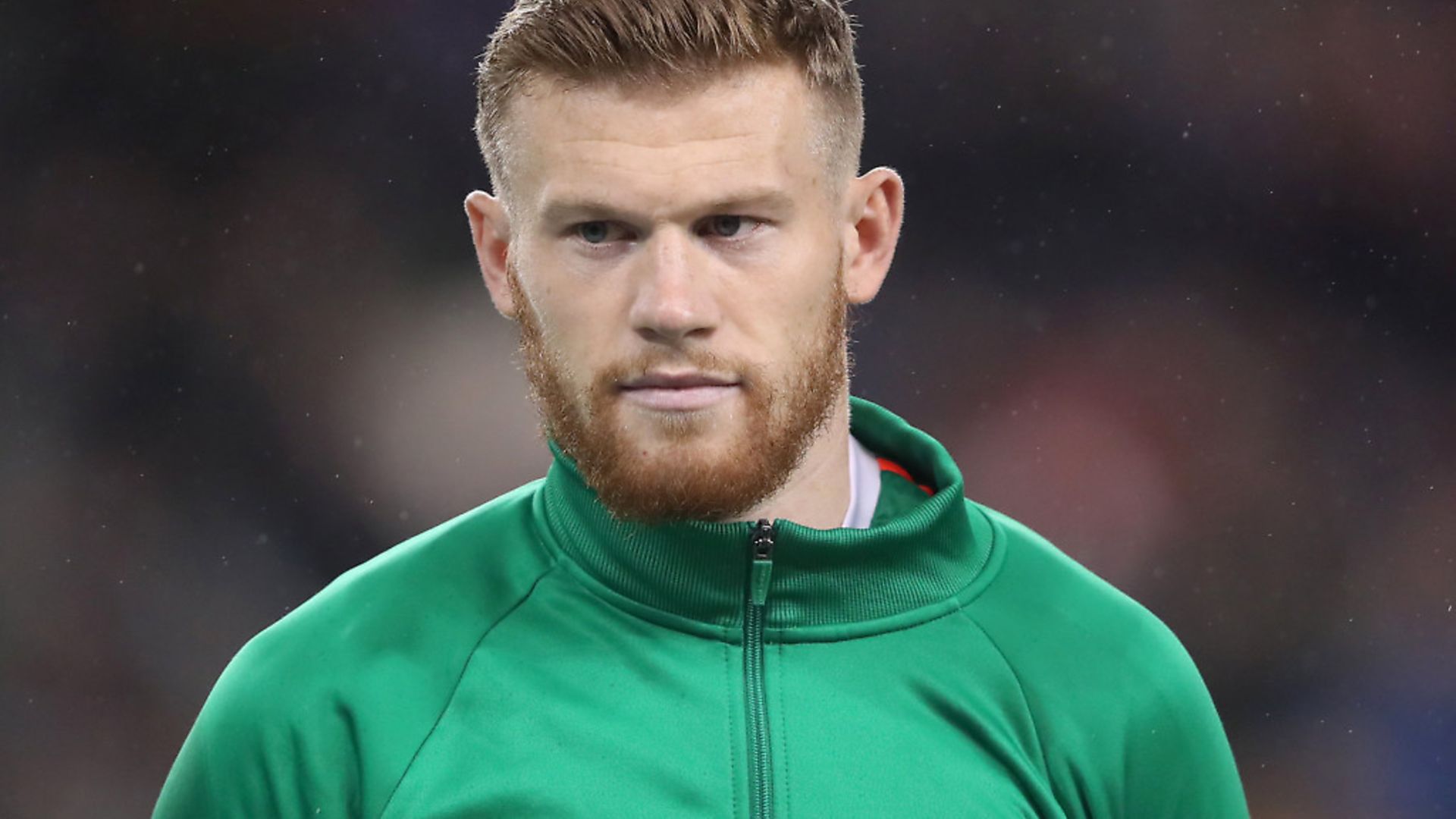
MIC WRIGHT on James McClean and those seeking to enforce what should be an individual act of remembrance.
The Cookie Monster wears a poppy. We know this for sure because on Monday November 7, 2016, the fluffy blue puppet appeared on The One Show – the BBC’s flagship programme for awkward chat and celebrity product-plugging – with the symbol of remembrance prominently pinned to his fur. It was arguably the most ridiculous example so far of the BBC’s need to ensure that anyone who appears on screen – puppet and human alike – during late-October and early-November is seen wearing a poppy.
As well being the year of the Brexit vote, 2016 was also the point at which poppy policing – intense shaming on social media of anyone not seen to be supporting the Royal British Legion’s campaign by sporting a poppy – entered the mainstream. The catalyst was a row over Fifa’s threat of sanctions if the England and Scotland teams wore black armbands with poppies, during an international fixture on November 11 of that year, citing a rule forbidding teams from featuring political symbols on their kits.
It was catnip for the tabloids who raged at the foreign interference and, in the end, both England and Scotland wore the armbands. Fifa fined the FA and Scottish FA before deciding the following year that the poppy isn’t a political symbol. But the whole controversy was a very modern confection in the first place. England had worn poppy armbands in 2011 but in earlier international matches played around Remembrance Day the poppy had not played a part at all. Things changed after a campaign by the Daily Mail in 2009 led to every Premier League team playing in poppy embroidered shirts on Remembrance weekend, with any player who opts not to join in now set up to be pilloried.
That brings us to James McClean. Uproar at the Derry-born Irish international’s decision not to wear a poppy has become a reliable yearly news story, as inevitable as claims that council’s are banning Christmas or the Daily Express covering Princes Diana’s pronouncements from beyond the grave. McLean, who currently plays for Stoke City, didn’t wear a poppy at his previous clubs – Sunderland, Wigan and West Brom – either. At Wigan, he issued an open letter to explain his decision, saying:
‘… if the poppy was a symbol only for the lost souls of World War I and II, I would wear one. I want to make that 100% clear… but the poppy is used to remember victims of other conflicts since 1945 and this is where the problem starts for me.
‘For people from the North of Ireland such as myself, and specifically those in Derry, scene of the 1972 Bloody Sunday massacre, the poppy has come to mean something very different…
‘…for me to wear a poppy would be as much a gesture of disrespect for the innocent people who lost their lives in the Troubles – and Bloody Sunday especially – as I have in the past been accused of disrespecting the victims of WWI and WWII.’
McClean is standing up for a point of principle, but egged on by tabloid triggers, self-appointed poppy police roundly abuse him online, demanding that an individual gesture of remembrance should be a universal one. It is the howl of those who talk about soldiers dying for our freedom but become enraged when people choose to exercise that freedom in a way they dislike.
The Royal British Legion has a clear position on wearing the poppy: ‘There is no ‘correct’ way to wear a poppy. It is a matter of personal choice whether an individual chooses to wear a poppy and how they choose to wear it.’ But the poppy police ignore that. There’s a particular irony there when you consider the Second World War, a conflict in which the Allies fought against a Nazi regime that revelled in enforced symbolism.
But for many in Brexit Britain, history isn’t about nuance. It’s about the stories of Sunday afternoon war film repeats. It’s easier to believe Brexit will be a roaring success if you also kid yourself that myths of glorious victories and Britain standing alone are true, or that every soldier is a hero or went willingly marching to war.
When Winston Churchill paid tribute to ‘the British airmen’ who had won the Battle of Britain and averted imminent invasion – ‘Never in the field of human conflict was so much owed by so many to so few’ – he failed to acknowledge that ‘the few’ also included pilots from 15 other nations, with Polish squadrons among the most effective and deadly.
Ever since, Britain has been far too enamoured with stories of history that smudge away the difficult bits and erase the contribution of others. If you wear a poppy – and I do – attacking those who don’t or indulging in fantasies of just wars or clean heroics does not honour the dead.
That’s not remembrance, it’s delusion.
Warning: Illegal string offset 'link_id' in /mnt/storage/stage/www/wp-includes/bookmark.php on line 357
Notice: Trying to get property 'link_id' of non-object in /mnt/storage/stage/www/wp-includes/bookmark.php on line 37






